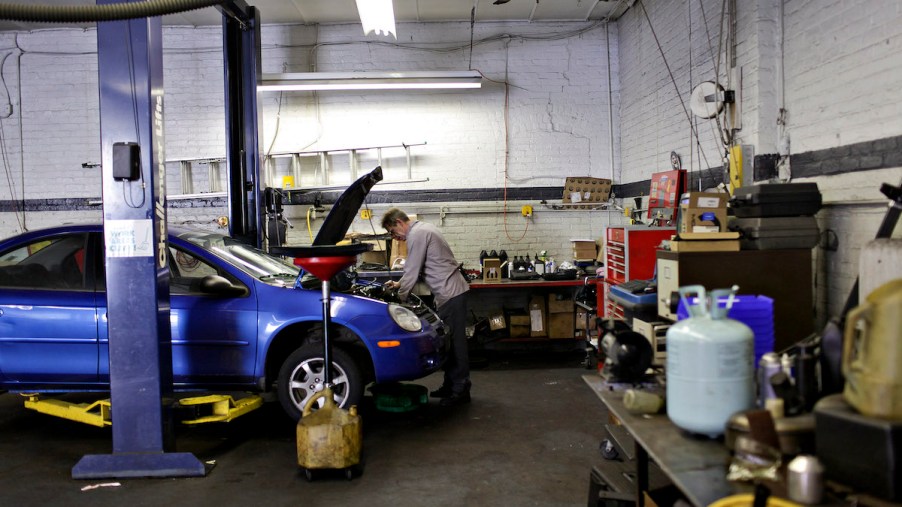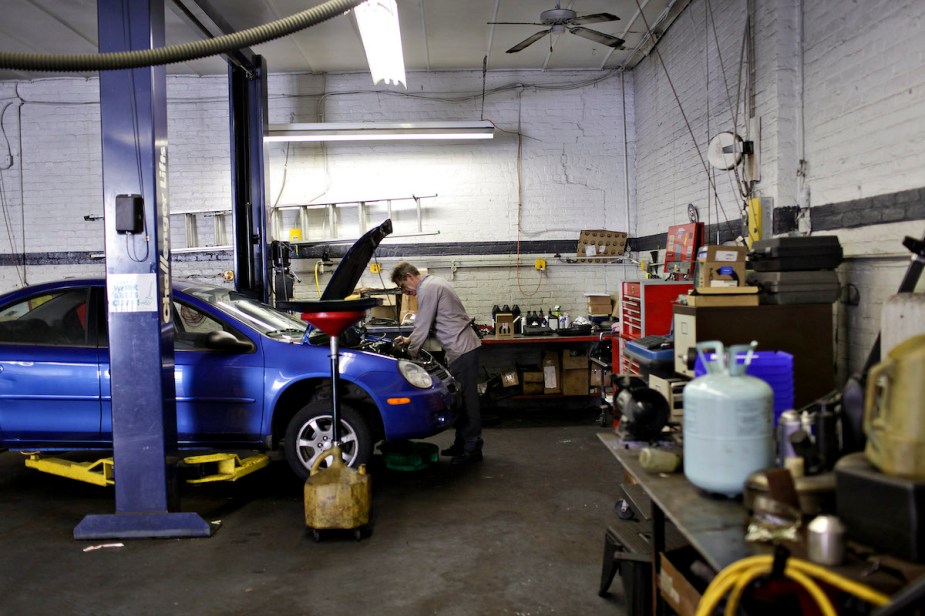
Car Solenoids: Everything You Need to Know
You already know about basic vehicle maintenance, like changing the oil, replacing the air filter, and rotating the tires. But car solenoids, such as starter solenoids and transmission solenoids, might sound alien. What are they? How will you know if they’re failing in your vehicle? And how much will you have to pay to replace them? Let’s take a look.
What are solenoids in cars?

Cars have different types of solenoids that perform various functions. They typically control the release of a fluid or gas into another mechanical part of your car. Some provide fuel savings by improving mileage, while others aid in increasing horsepower and torque in the engine. And sometimes, these parts can get gummed up with debris, causing issues.
Solenoids work through the use of electricity. An electrical current will pass through to open or close a valve that will encourage the flow of fluid or stop it from moving into the desired part of the vehicle.
The most common types of car solenoids are in the transmission and the starter. How do you know if they’re faulty, and how much does it cost to replace them? Let’s take a look at each separately.
What you should know about starter solenoids
Starter solenoids — or starter relays — are located between the ignition switch and the vehicle’s engine, J.D. Power explains. A solenoid works by receiving an electrical current from the car’s battery and one from the ignition. It then passes the current to the starter motor, kickstarting the engine.
When the starter solenoid encounters an issue, your car will experience one of a few symptoms. One, the vehicle might not crank or start because the relay fails to pass the electric current, Car Parts reports. A worn-out part will need to be replaced.
Another symptom is that you don’t hear a clicking sound when trying to start the engine. If your vehicle won’t start, you might think the battery is dead. That might be true if you hear a clicking sound. But if you don’t hear that click, the starter solenoid could be the culprit because the clicking is the part trying to do its job.
A weak solenoid might not have enough power to send an electrical current to the starter motor. Or it sends a small amount that isn’t enough for the starter to move the flywheel. So, another symptom is that you hear the starter spinning without the flywheel engaging. You might even hear the starter cranking slowly. However, those two instances rarely occur.
So, how much does it cost to replace a starter solenoid? Expect to pay $400 to $600 because the starter motor and the solenoid often need to be replaced together. Technicians rarely replace only the relay. If you’re doing the repair work yourself, the part will probably cost less than $100, depending on where you buy it.
How to determine if you have a faulty transmission solenoid
In the transmission, a solenoid controls fluid flow so your car can shift gears. When the transmission solenoid goes bad, a few symptoms will alert you to the problem.
One sign is when you notice your transmission isn’t shifting normally. It will skip gears (up or down), get stuck in one gear, or shift between two gears repeatedly. Another sign is when you notice a long delay in shifting into the correct gear. That’s usually due to not enough fluid flowing through to enable the amount of pressure needed to change the gear, Transmission Repair Cost Guide explains. You could still technically drive the vehicle, but if you waited too long to fix it, you could end up with a large repair bill.
Replacing a transmission solenoid could cost between $200 and $600. The amount would depend on whether the technician replaces one solenoid or a pack. Labor costs vary among repair shops, but you’ll pay about $60 to $100 for a two-to-four-hour job. When the transmission solenoid goes bad, you can typically replace only that part, not the entire transmission.
Though there are several types of car solenoids, the two most common are the starter and transmission relays. Each has specific signs to look for if they’re going bad. So be aware of what to look for, and get the repairs done soon to avoid higher costs.


